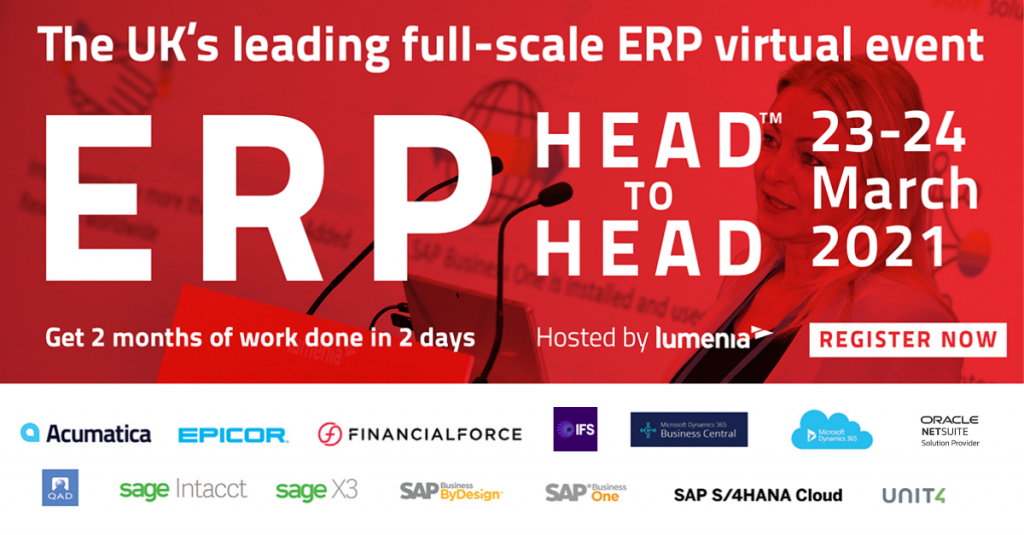Every year businesses spend millions on their software support, and whatever software your business is using – whether that’s Oracle, SAP, Salesforce – you’ll have a software maintenance package to accompany it. Typically, these contracts are renewed annually, and when that support package renewal date comes round, many businesses are resigned to signing the cheque.
Perhaps this year could be different. Think of your renewal date as an opportunity to interrogate the support service you’re receiving. Is the business getting good value? Do you have flexibility? Can you make budget savings? Is the support contract working in line with the business’s goals and digital transformation plans? These are the questions that businesses should be asking, and contract renewal season is the perfect time to do so.
Upgrade, upgrade, upgrade
The major Enterprise Resource Planning (ERP) providers are constantly revamping and updating their products and offerings. For SAP the latest iteration of this is S/4HANA. SAP is keen to show its customers that in-house maintenance contracts can be flexible and competitive, but it’s also keen to get customers with on-premise legacy infrastructures moved over to the cloud. And once they’re there, new software updates are expected more regularly.
This is all presented in the name of digital transformation, and many businesses are in a position where they want to adopt newer, cloud-based products – perhaps even taking the plunge and migrating entirely to ecosystems like S/4 HANA. But for others, especially those with existing, stable, on-premise ERP systems that suit their needs perfectly, they’ll undoubtedly be asking the question: Do I have to migrate? This isn’t a risk-averse or outdated position, either – each business understands its unique needs better than anyone else.
The crucial consideration for businesses faced with these upgrades, therefore, is how their ongoing maintenance costs will be affected. In the case of S/4 HANA, for customers who wish to remain on their on-premise legacy systems, extended maintenance will be available. But it’ll come with a price tag of four percent on top of their annual maintenance cost.
One thing we’ve learned from decades in the software support business: support for legacy versions of software – at some point or another – will end. This might be a gradual process, or there may be a hard cut off. Whatever happens, businesses must be prepared for this eventuality, and this must be a consideration when deciding whether to renew.
What do you currently use support for?
Many businesses believe, understandably, that the only support on offer is that supplied by the vendor themselves – they know the product inside out, so surely they are best placed to advise on the intricacies of the software?
This isn’t quite right. ERP systems are complex and vast, with many moving parts. But they are also stable – your business may be on a version of Oracle that’s a decade old. You’re not going to be faced with software teething problems or a multitude of security patches like you would expect in the aftermath of a new release. Most ERP users find that if they’re faced with support issues, it’ll be because of custom configurations or code.
If that’s the case, check that this level of support is indeed provided by your current vendor. If you’re using Oracle, for example, you may well already know that customized code and configuration support is not offered as standard.
You should also consider your business’s current digitization or transformation journey. Are there IT infrastructure changes on the horizon that will affect how you use – and how you need to be supported by – your ERP?
Are cost-reduction strategies available?
It’s complicated.
Software giants play a central role in many organizations, with larger firms relying on databases, applications and entire software stacks that are highly customized for operational tasks. Businesses sometimes even merge aspects of several ERP software vendors together.
If you’re in this position of highly customized, even amalgamated, software use, you’d ideally want this hybrid, personalized approach to your software support, too. What’s the point in paying support costs for products you don’t need just because they exist under the vendor’s software umbrella?
But vendors often do not offer this level of highly specific support. Take Oracle: if your business has several products licensed under the same Customer Support Identifier (CSI) but you’re not using some of them, you might expect that you could pay support for just the products you’re using. But, your repriced support contract will be largely the same as your current package.
But what if you want to cancel multiple, unused products to save on support fees? Unfortunately, as you use fewer and fewer products within the software stack, support costs do not reduce proportionally. Even with multiple products removed from your system, the support contract will remain expensive. It might even stay at the original price.
Third-Party Solutions
Third-party software support reduces operational costs, improves the standard of software support, and ultimately frees up businesses to divert their time, resources, and budget to the initiatives that matter.
Customizable support offerings are at the heart of third-party support, with current or legacy systems supported for as long as customers wish. This is all offered as standard with the added reassurance that third-party support specialists are experts in their fields, often having worked in-house as software specialists and engineers at Oracle, Sap, Microsoft or JD Edwards themselves. Many third-party software offerings go beyond simple fix services, with consultancy, software management, and advice for software migrations or integrations available too.
If you’ve found yourself looking at your renewed software support contract and asking, “what exactly are we paying for?” then it’s time to look at the alternatives. Third party software support means no forced upgrades or end-of-support dates.
More and more businesses are looking to this option to fill the gap where in-house support falls short. It’s easy to see why.




